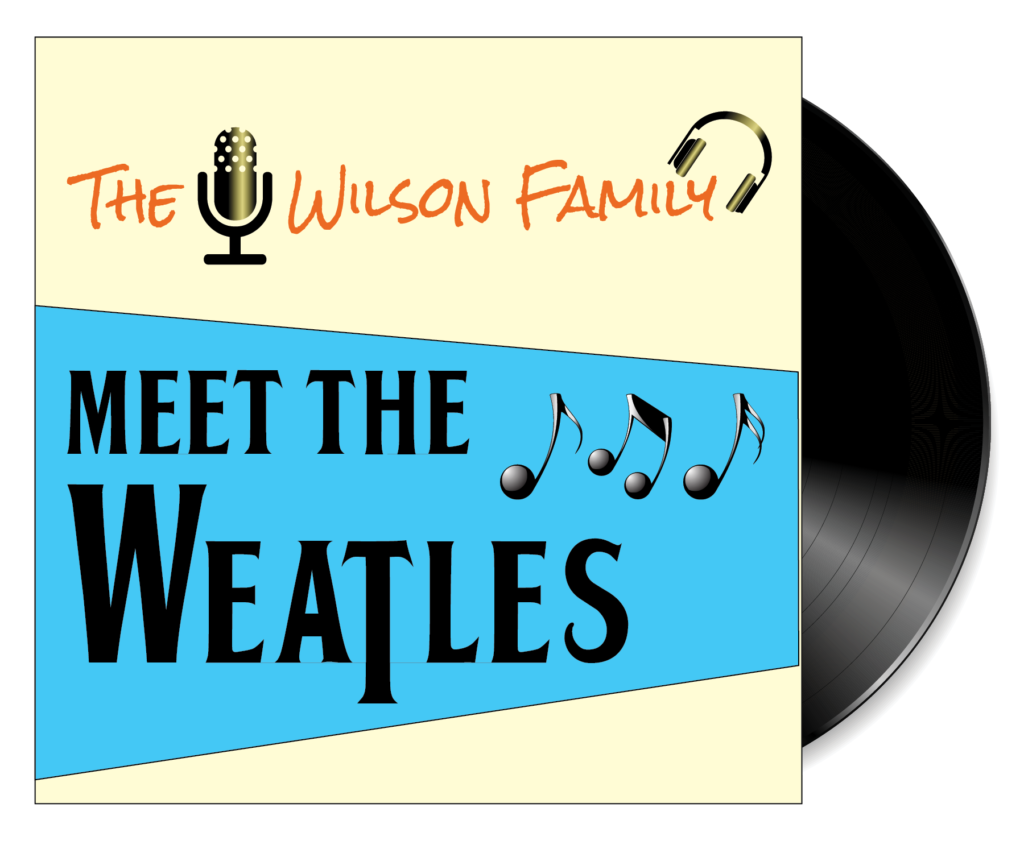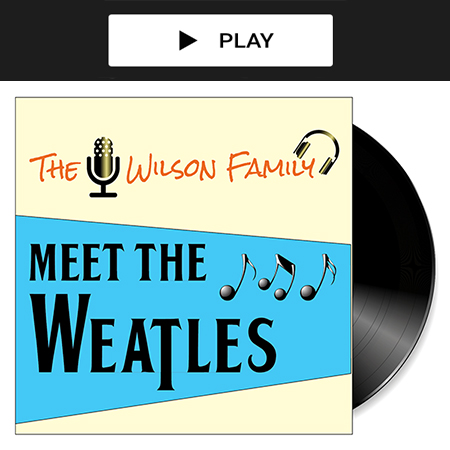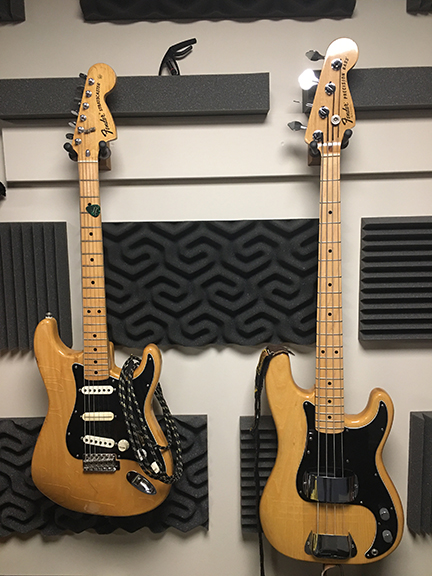About the Album
For years, my mother had been saying “All I want for Christmas is a recording of my family singing Christmas songs.”
So, in 2000, when my children, Brad and Hannah, were eight and ten years old, respectively, we recorded a family Christmas album. It included my wife, Louise; my sister, Judy; and my father, Cliff, Sr.; as well as me and the kids. There were ten songs in all. We used karaoke tracks and midi tracks for accompaniment, and recorded vocals on my Windows 98 PC, with a microphone connected to an ancient mixing board and in turn to the computer’s sound board, along with some cheap audio-editing software.
The Wilson Family Christmas Album was actually pretty good. The children sang sweetly, and the adults more than held their own. We distributed perhaps a hundred copies of the CD to friends and family, and people enjoyed it; some tell me they still listen to it every year. Despite a few misgivings, it has brought us a lot of joy over the years.
Now, 20 years later, we have made a follow-up album: Meet the Weatles
The album is a collection of songs by the Beatles. The working title was The Wilson Family Beatles Album, but we had to scrap that because of trademark rules.
This is a much more ambitious project than the Christmas album, with 18 songs, and all tracks created specifically for this project. There are no karaoke tracks or canned midi arrangements; everything was cooked from scratch in my studio, which is a big step up from the bare-bones technology at our disposal in 2000.
The cast of performers has expanded, too, with Hannah’s husband Joe Rebrovick, Brad’s fiancé Maeli Goren, and Judy’s husband Paul Enuco joining the party, as well as a number of additional friends contributing various instrumental talents where needed.
While we are doing covers of the Beatles’ songs, we have tried to make these songs our own. We are not trying to sound exactly like the Beatles, but in most cases we stuck pretty close to their arrangements. Indeed, when working with music as revered as these songs, it can be hard to change a single note, and some songs here, such as When I’m Sixty-Four, sound a lot like the original – what would you change? At the other extreme, Hannah’s rendition of Can’t Buy Me Love is a creative departure that belongs in an entirely different genre of music, while Brad’s A Day in the Life is a wonderful multi-genre reimagining that is at once true to the original and strikingly fresh.
Each song has its own page on this site, where I have listed the personnel for the track and commented on the creative process that went into it. For each song, I tell you why it’s on the album and how/why our recording is different than the original. And I provide one or two fun facts about the history of each song.
Working intensely with these songs over the past 18 months has given me some new insights into the genius of the Beatles. These may not be profound or original, but they certainly struck me:
- Ringo is a much better musician than he gets credit for. His timing is impeccable, and his parts are exceptionally creative, varied and tasteful.
- George Harrison was a hell of a guitarist. Like Ringo, he keeps things interesting. Whether he’s improvising fills (I Want to Hold Your Hand), chiming out an iconic intro (Ticket to Ride), or playing the entire bassline on guitar (Two of Us), his playing is bold, exciting and, to this day, fresh.
- Paul McCartney sang really high! In Because, for example, we have our sopranos on his part and they sometimes struggle with the range. I have a high tenor voice, and there are a quite a few of his parts that I can’t come close to. Maeli sings Oh! Darling in McCartney’s original key.
- John Lennon and Paul McCartney fed off each other and drove each other. It is widely understood that Lennon’s brooding presence (Julia) was a counterbalance to McCartney’s buoyancy (When I’m Sixty Four), but as you read the stories behind their compositions it is remarkable the extent to which they were true partners. Yesterday was written and performed by McCartney, but Lennon suggested the word “yesterday” to him to launch him in the process of writing the words to replace his placeholder lyric “scrambled eggs”. A Day in the Life — one of their very greatest songs – has sections clearly written by one or the other, but also mutual influences. Theirs was a truly amazing partnership.
- George Martin was as much a genius as any of the above. His arrangements (string quartet on Yesterday, clarinet trio on When I’m 64) are lovely, subtle and groundbreaking. His influence on the band was profound. He provided leadership in the early years and helped them all become the musicians they would eventually be.
Finally, I want to acknowledge the extraordinary contribution of my old friend and bandmate Plinky Giglio of Seventeenth Avenue Audio Production, who worked with me to do the final mixes and mastering. Plink is a pleasure to work with. In addition to giving the project a professional sheen, he taught me a lot about the art of mixing and was always diplomatic in dealing with my broad range of misconceptions.
— Cliff Wilson, November, 2020


